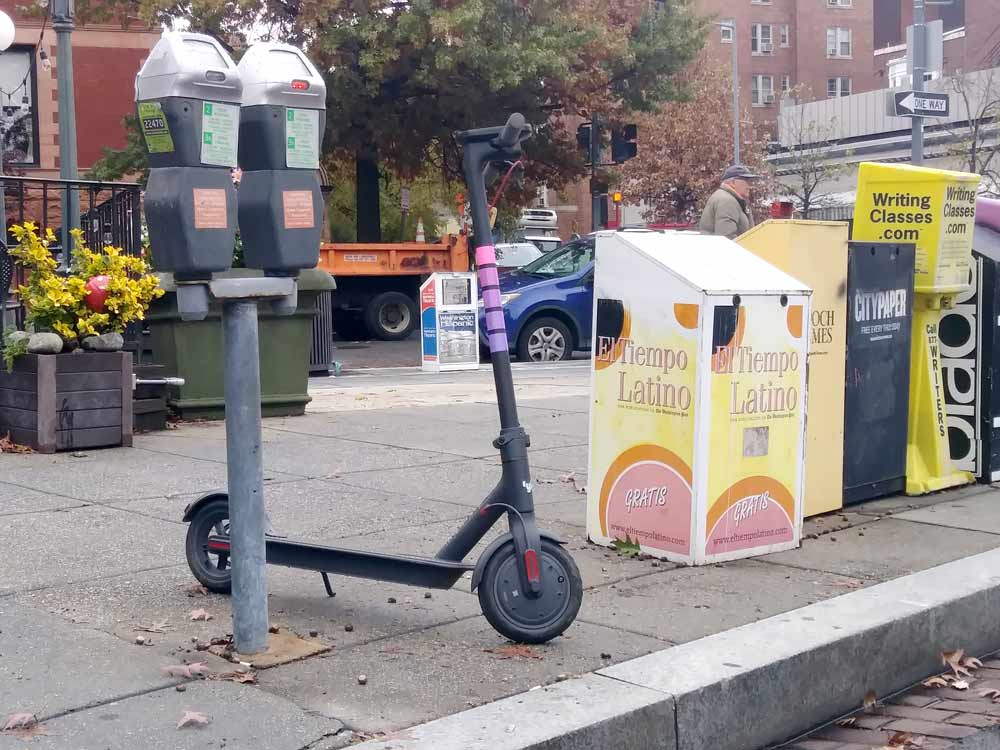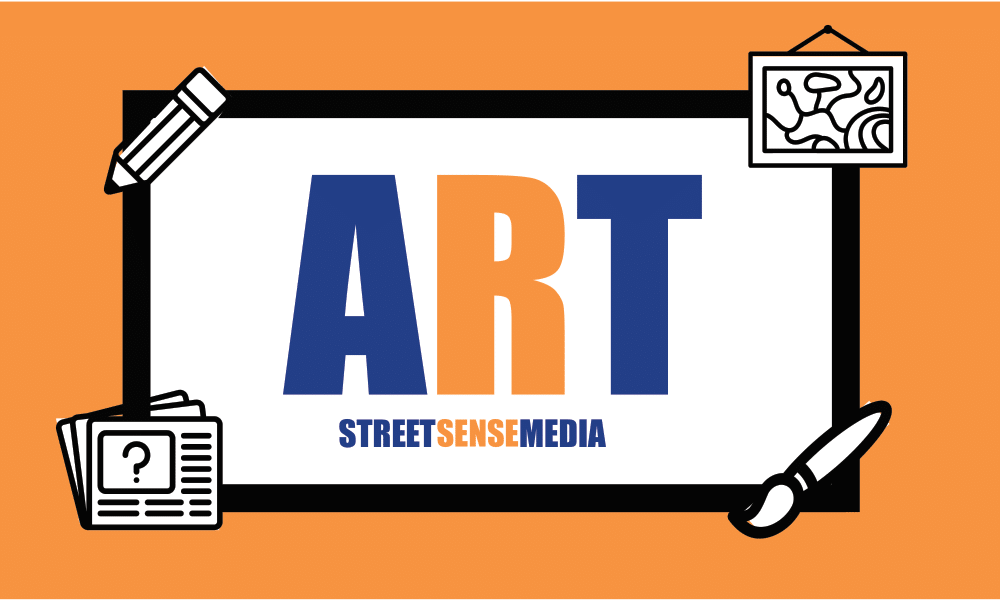Lyft recently added 250 scooters to D.C. streets and plans to bring the number up to 400 in the near future. This addition brings the district’s dockless scooter count up to 2,000. While the scooters cost $1 to unlock and an additional 15 cents per minute of use, Lyft is offering a cheaper option for low-income residents.
For just $5 per month, residents who can show proof of government financial assistance can receive unlimited rides of 30 minutes or less on Lyft scooters. With rising Metro costs and data suggests longer Metro wait times for poorer neighborhoods, scooters are an attractive option.
The Lyft “Community Pass” program launched last month and is available to area residents over age 18. Residents can apply online by entering their information and uploading a photo of a document that proves they qualify for a federal or state assistance program, such as Medicaid, SNAP, or a discounted utility bill. Lyft is the first brand of scooter in D.C. to offer this type of program.
“Access to transportation is an everyday necessity,” Lyft says on its website. “These emissions-free modes of transportation offer a greener alternative to car ownership or ridesharing.”
Similar low-income options are offered by competing dockless vehicle companies Bird, Lime, Skip and Spin, according to a spokesperson for the D.C. Department of Transportation. However, the low-income programs for Skip and Spin are not yet available in the District.
WMATA offers reduced fares for certain populations, but not every low-income resident can qualify. Those with disabilities, a Medicare ID, a government-issued photo ID, elderly residents, and students from ages 5 to 21 can ride the Metro at discounted rates or even free fares in the case of elementary and high school students. The Lyft scooter would provide a cheaper method of transportation for those who don’t qualify for reduced fares and who are physically able to ride.

Last year, Metro fares increased with a 10-cent hike on peak fares and a 25-cent hike on off-peak fares. Researchers at the Washington Post also found transit times were longer in low-income areas, despite shorter distances from inner D.C.
For instance, residents in Gaithersburg or Bethesda, 20 miles outside of city limits, can make it to the White House in about an hour using public transit, whereas residents much closer in areas just across the Anacostia River or in the southernmost tip of the District have a commute just as long despite being 13 miles closer. According to districtmobility.org, Ward 8 residents have some of the longest transit times — roughly 46 minutes to the White House. According to Google Maps, this is longer than it would take to bike there. The drive time from the Ward 8 Farmers Market to the White House is only 26 minutes, in heavy traffic.
While Lyft’s scooter program provides an alternative for low-income residents, in San Francisco, Lyft just spent $100,000 to oppose a ballot initiative that would tax corporations with gross receipts more than $50 million (roughly .5 percent more) to fund 4,000 beds for homeless residents in the city. Tech companies have mixed positions on Prop. C; Salesforce CEO Mark Benioff came out in support of the initiative, while Twitter CEO Jack Dorsey is spending money to topple it. Because of Lyft’s opposition to Prop. C, some San Francisco residents are boycotting Lyft, once thought of as the more ethical rideshare app compared to Uber. Prop C passed overwhelmingly, but the city has put spending on hold until legal disputes around the vote are settled.
"I’m calling on all San Franciscans — indeed all decent Americans — to boycott @lyft. Not even @Uber, with all its corporate baggage, has taken a stand like this against #SF’s thousands of suffering men, women, and children on the streets." #homelessness #YesOnC https://t.co/GrPsSOWUIw
— Bruce Mirken (@BruceMirken) October 22, 2018
According to the San Francisco Examiner, Lyft has responded saying “We support Mayor [London] Breed, Senator [Scott] Wiener, and Assemblymember [David] Chiu in implementing approaches that most effectively address homelessness,” referring to the elected officials’ stance against Prop. C, who believe the ballot initiative will jeopardize job opportunities in the city.
As Mayor, I must weigh more than popularity and good intentions. I must consider the long-term impacts on our City, and thus, upon lengthy analysis, I cannot support Proposition C. https://t.co/fRbVUFUcOn
— London Breed (@LondonBreed) October 5, 2018
Both Lyft and Uber, which owns the Jump dockless bike brand, have a record of systematic discrimination against Black users, according to a transportation equity study conducted by the University of California’s Institute of Transportation Studies.The study showed Uber and Lyft drivers had a roughly 4 percent higher cancellation rate for Black passengers. However, both Lyft and Uber have a “zero-tolerance” discrimination policy.

On Nov. 5, the District Department of Transportation released new regulations for its dockless vehicles pilot program. The new rules will require dockless transportation companies to offer low-income pricing plans like what Lyft has already done. In addition, companies will now be required to offer cash-payment and non-smartphone options. The new regulations also require scooters and bikes to be deployed to all eight wards every day by 6 a.m.
All five dockless transportation providers in the city will need to comply with these regulations in order to operate in the district in 2019. The new guidelines reflect the goals for the program and aim to address complaints the department received regarding safety and equity, according to a DDOT press release.
The new regulations also increase the number of vehicles companies may provide from 400 to 600 and also allow that many vehicles per type — bicycle and scooter each — instead of a comprehensive vehicle limit per company. Despite the increase, this limit has received some pushback from providers, according to Greater Greater Washington. David Estrada, Bird’s head of government partnerships, sent a letter to Mayor Muriel Bowser saying the new regulations “would render it impossible for any provider to serve the D.C. community and truly advance the shared mission of reducing short car trips,” as reported by DCist.
“Our decision to require operators to provide equitable distribution and access to dockless vehicles is consistent with Mayor Bowser’s commitment to ensuring that all residents have access to mobility options,” said the DDOT spokesperson in an e-mail. “We support this effort through the Capital Bikeshare system by offering organizations deeply discounted memberships for their clients.
Zachary Headings contributed reporting.








